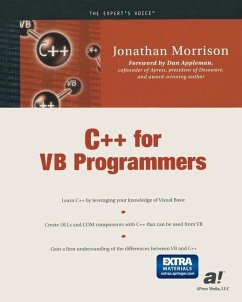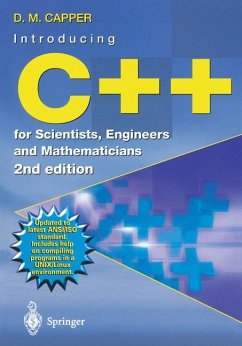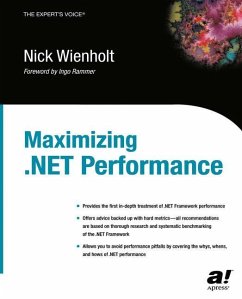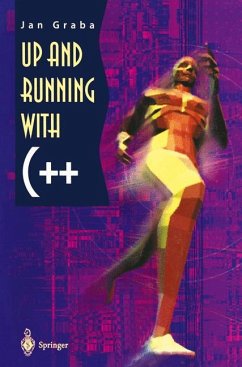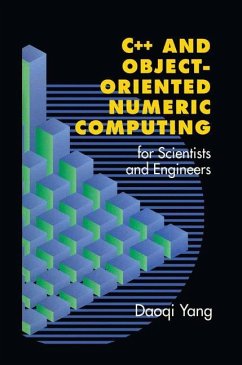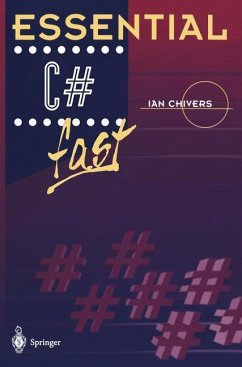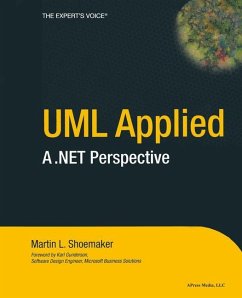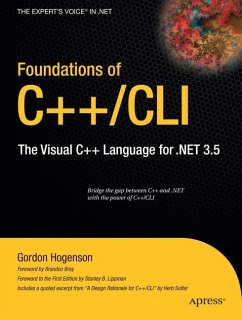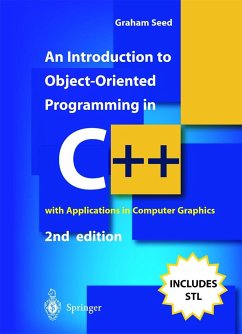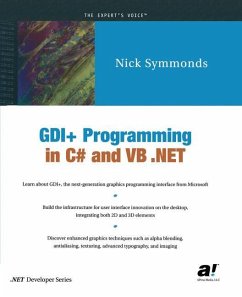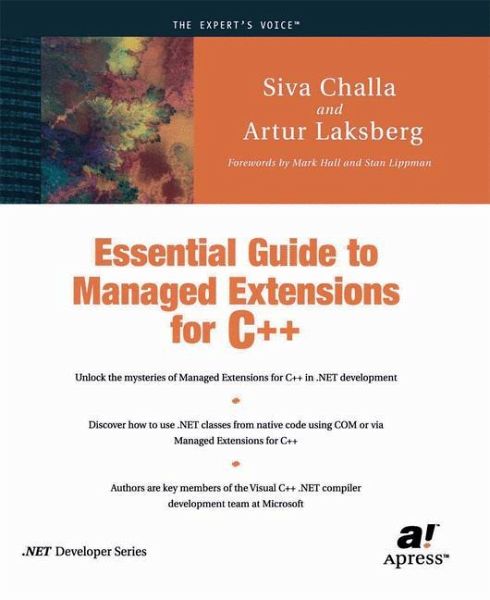
Essential Guide to Managed Extensions for C++

PAYBACK Punkte
14 °P sammeln!
Features how to write .NET applications using C++, and how to mix unmanaged and managed C++ code in the same application Details when and why to use unmanaged code in .NET developments Includes code samples with detailed explanations in every chapter The Essential Guide to Managed Extensions for C++ is a comprehensive guide for programmers writing code in Managed Extensions for C++ (MC++). The information in this book comes straight from the horse's mouth-both authors have been key members of the Visual C++ .NET compiler development team and have spent most of their time implementing the langu...
Features how to write .NET applications using C++, and how to mix unmanaged and managed C++ code in the same application Details when and why to use unmanaged code in .NET developments Includes code samples with detailed explanations in every chapter
The Essential Guide to Managed Extensions for C++ is a comprehensive guide for programmers writing code in Managed Extensions for C++ (MC++). The information in this book comes straight from the horse's mouth-both authors have been key members of the Visual C++ .NET compiler development team and have spent most of their time implementing the language and educating others about managed C++.
The book is divided into two parts. Part One covers the basics of MC++. It starts with an introduction to MC++, and gives a brief overview of the .NET Framework. Next, it delves directly into the various features of MC++, including managed classes, interfaces, value types, properties, enumerations, pointers, arrays, operators, delegates, attributes, events, and exceptions.
Part Two of the book is devoted to the transition between the managed and unmanaged worlds. It starts with a general introduction to interoperability between managed and unmanaged code. The following chapters describe the Platform Invoke service, interoperability between COM and .NET, and various data marshaling techniques. The last chapter of Part Two shows how MC++ can be used to write interoperability layers over existing components with minimal overhead.
The Essential Guide to Managed Extensions for C++ is a comprehensive guide for programmers writing code in Managed Extensions for C++ (MC++). The information in this book comes straight from the horse's mouth-both authors have been key members of the Visual C++ .NET compiler development team and have spent most of their time implementing the language and educating others about managed C++.
The book is divided into two parts. Part One covers the basics of MC++. It starts with an introduction to MC++, and gives a brief overview of the .NET Framework. Next, it delves directly into the various features of MC++, including managed classes, interfaces, value types, properties, enumerations, pointers, arrays, operators, delegates, attributes, events, and exceptions.
Part Two of the book is devoted to the transition between the managed and unmanaged worlds. It starts with a general introduction to interoperability between managed and unmanaged code. The following chapters describe the Platform Invoke service, interoperability between COM and .NET, and various data marshaling techniques. The last chapter of Part Two shows how MC++ can be used to write interoperability layers over existing components with minimal overhead.



